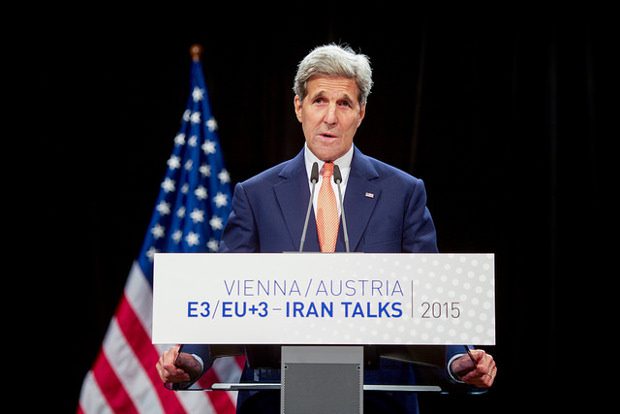2016 and the Politics of the Nuclear Deal

Dan de Luce and Molly O’Toole note that there is no political backlash against supporters of the nuclear deal:
Yet more than a year later, no Democrat has been kicked out of office over the nuclear deal in a primary and it’s unlikely that any Democratic incumbent will lose their seat in the Nov. 8 election because of it. The much-anticipated blowback has yet to materialize, despite opinion polls that show a majority of Americans oppose the agreement.
It’s not really surprising that supporters of the deal haven’t faced a backlash, since public opinion on these issues seems to be extremely fickle and doesn’t tell us how people are going to vote. When the deal was first negotiated, polls showed broad public support for it. That is consistent with public support for most arms control and nonproliferation agreements. In principle, Americans respond favorably to diplomatic efforts aimed at reducing nuclear arsenals or preventing the spread of nuclear weapons. Following months of relentless attacks on it and a generally pitiful defense from the administration, however, it is little wonder that the numbers have moved in the other direction.
That doesn’t mean that there is a significant constituency among voters that is going to punish the deal’s supporters. The few people that are deciding their vote based on how hostile their representatives are to Iran were already voting for Republican candidates this year anyway. Besides, the nuclear deal has been a success and has done exactly what it was supposed to do, so it’s not as if anything has happened that would make supporting the deal politically toxic. It doesn’t hurt that every argument deal opponents make is false or misleading. Critics of the deal have destroyed whatever credibility they had in their attempts to derail the agreement, and it wasn’t going to be an issue that determined many votes even if they had better arguments.
If anything, it is opponents of the deal that are running into political trouble (though not necessarily because of their opposition). Mark Kirk and Ron Johnson are among two of the most vocal opponents of the deal, and both are likely to lose their re-election bids. They also happen to be losing to Democratic candidates that have either voted for or expressed support for the deal. They are losing mainly because they are Republicans in blue states and are seeking re-election in what has turned out to be a much more Democratic year because of the presidential election, but their hard-line foreign policy views certainly haven’t helped their cause.
The authors mention the role the deal is playing in various Senate races:
The Iran nuclear deal is a frequent talking point in pivotal Senate races in Florida, New Hampshire, Wisconsin, Nevada, and Illinois, with Republicans seeking to portray their opponents as naive and weak on national security.
What they don’t say is that the Republican candidate is losing in every state save one, and there is no evidence that most voters are buying what the Iran hawks are selling.
The article describes all of this as “thanks to Trump,” and no doubt his unpopularity is a drag on Republicans across the country (and especially in blue states), but these incumbents would have had a difficult time against strong opponents in any case. Trump has become an excuse for deal opponents not to waste their resources on doomed fights, but it is doubtful that support for the deal would have cost incumbents many votes. Denouncing the nuclear deal has been one of Trump’s favorite talking points, which has probably only caused people to associate opposition to the deal with his peculiar blend of ignorance and aggressive rhetoric. As with everything else he embraces, Trump hurts the anti-nuclear deal cause, but it was a bad cause that was never going to move a lot of votes in the first place.
Comments